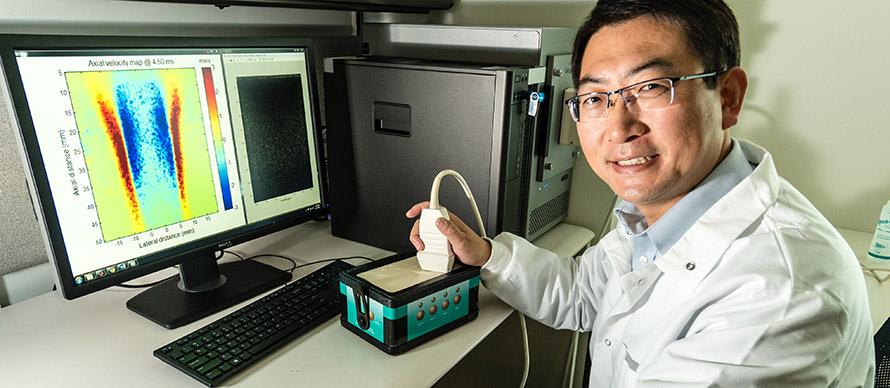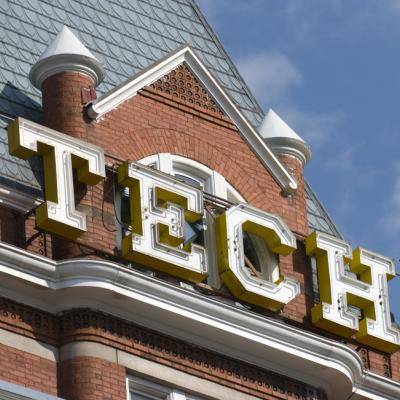
Bioengineering applies engineering principles to study, manipulate, and control biological processes. In this area, mathematical, physical, and engineering concepts are developed and applied to solve problems in medicine and biology through hardware and software including electronics, sensors, engineering systems, data processing, computational imaging, machine learning, and artificial intelligence.
ECE's bioengineering group is on the leading edge of developing physical and mathematical concepts and techniques that are applied to medicine and biology. Specific applications include feature extraction in cardiac imagery, MEMS devices for direct interfacing with biological systems, modeling of biological sensory and motor systems, and the development of sensors for the detection of cancer cells.
Because of the continued advancement of medical technology and the many unsolved problems in the understanding and treatment of disease, bioengineers play an essential role in the improvement of the understanding of biological systems, and in the development and evaluation of healthcare technologies.
Georgia Tech bioengineering students have multiple options for pursuing graduate degrees. Numerous ECE faculty are members of the interdepartmental Bioengineering Graduate Program. Thus, students entering ECE who want to pursue an M.S. or Ph.D. in Bioengineering can matriculate either as traditional ECE students with a focus in Bioengineering or into this interdepartmental Bioengineering program with their home School designated as ECE. Virtually all Ph.D. students receive funding support either through teaching or research assistantships.
Research
The Bioengineering faculty and students are engaged in a range of basic and applied research programs, which are supported by government agencies, private foundations, and industry sponsors. Major sponsors include the National Institutes of Health (NIH), the National Science Foundation (NSF), the Department of Defense, and the Whitaker Foundation.
The group's research is augmented by the Neurolab (Laboratory for Neuroengineering).
Numerous research collaborations exist with other Schools within the Georgia Tech Colleges of Engineering and Science and with the Emory University School of Medicine.
Bioengineering research falls within the following major areas:
- Bioelectronics, Biosensors, and BioMEMS
- Neuroengineering, Neuromodulation, and Neural Control
- Medical Imaging and Sensing, Devices, and Instrumentation
- Diagnostic and Therapeutic Ultrasound
- Optical Imaging and Microscopy, Biophotonics
- Computational Imaging and Signal/Image Processing
- Bio- and Neuro-inspired Signal Processing
- Biological and Computational Vision, Machine Learning
Academics
The depth and breadth of faculty expertise in all areas of bioengineering is reflected in the curriculum, which provides students with a solid foundation in such areas as bioinstrumentation, medical imaging, biosystems analysis, biological signal processing, and neuromorphic engineering.
















